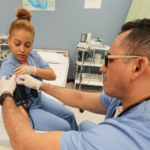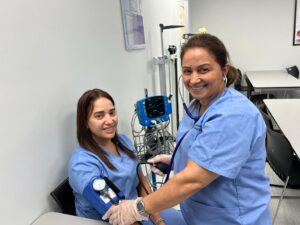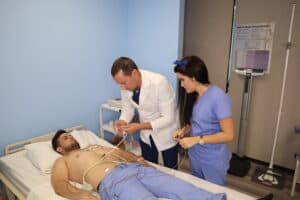 When taking on the challenge of a new career, you need to understand the core values and concepts. Medical assistants help doctors and nurses improve the quality of medical care. Part of this comes down to handling many administrative tasks like scheduling, billing, and intake paperwork. More and more often, medical assistants are taking an active role in hands-on patient care. This could mean updating patient charts or assisting with tests and minor procedures. Today’s medical assistant crosses into new areas.
When taking on the challenge of a new career, you need to understand the core values and concepts. Medical assistants help doctors and nurses improve the quality of medical care. Part of this comes down to handling many administrative tasks like scheduling, billing, and intake paperwork. More and more often, medical assistants are taking an active role in hands-on patient care. This could mean updating patient charts or assisting with tests and minor procedures. Today’s medical assistant crosses into new areas.
The patient history is what you might expect. You’re taking a detailed medical history. Especially when dealing with a chronic condition, this can help doctors rule out certain conditions. It can also give them an idea of what treatments have been tried and any other important factors. This can also tell doctors when they need to order liver and other tests based on which medications patients are taking.
A medical assistant will need to take into account past notes and the current condition of patients. Programs help many professionals stay on track to ask the right questions and update key vitals. Things like new medications, surgeries, and other factors are all essential. When doctors have a full picture of what’s going on, they can provide more efficient care without all the rush. In many cases, this could also improve the diagnosis process. As you gain more experience, patient charts and histories can become second nature. When you’re learning new concepts, you can keep a few basic things in mind.
Improve Patient Record Taking in a Medical Assistant Program
 A medical assistant program teaches students the essential practical skills. Getting the job done isn’t quite as simple as just following a paper list. Successful medical assistants consider many factors that aren’t always as black and white.
A medical assistant program teaches students the essential practical skills. Getting the job done isn’t quite as simple as just following a paper list. Successful medical assistants consider many factors that aren’t always as black and white.
- Build a Rapport: One of the most important things any medical professional can do is build a rapport. Make your patients feel comfortable. A little small talk can go a long way. Sometimes, this means taking things a bit slower and speaking slowly and deliberately. Especially when dealing with older patients, the essential nuances can change. Often, explaining what you’re doing with key medical equipment or everyday procedures can go a long way with new or nervous patients.
- Follow the Protocol: Clinics often have a standard protocol for each patient. You’ll need to fill out certain boxes and collect key information. Don’t jump around. Instead, stick to the plan as closely as possible. This way, you won’t miss anything. Never assume you know how the patient will respond. This could lead to deadly mistakes.
- Ask for Details: It can be easy to fill in the spaces on your own, especially after a long day. Even if it seems redundant at first, don’t be afraid to ask for more details. This way, you can be sure you’re getting a full picture.
- Avoid Judgment: Some areas of medicine are more prone to this than others. Patients sometimes complain about judgmental medical professionals. This can be hard depending on your background. Some patients are just more sensitive. It’s a medical assistant’s job to be sympathetic and avoid appearing judgmental at all times. This is true even when patients are engaging in obviously dangerous and unhealthy activities like drug use.
- Don’t Offer Advice: While medical assistants are a crucial part of patient care, they only have limited training. Leave the diagnosis and treatment to doctors and nurses. Unfortunately, even a seemingly benign statement can do a lot more damage than you imagine. Always tell patients their doctor or nurse practitioner will be happy to discuss medical concerns with them.
Find a Career You’ll Love in a Medical Assistant Program
Medical assisting can be exciting and offer plenty of opportunities for growth. Many people find a career helping others and doing something they love. Medical assisting can be challenging and provide opportunities for advancement with higher pay. Some students go onto nursing or medical school. Others build a lifelong career in medical assisting.
Modern medical assistants can work in primary care clinics and hospitals across the country. They can also find careers in specialty clinics and many other areas. Our Florida medical assistant schools prepare students to meet industry requirements and build a vital skill set. Choose to enroll in either of our two campuses: Miami medical assistant school or Miramar medical assistant school. For more information on your options and how FVI School of Nursing and Technology can help you move forward contact us!









